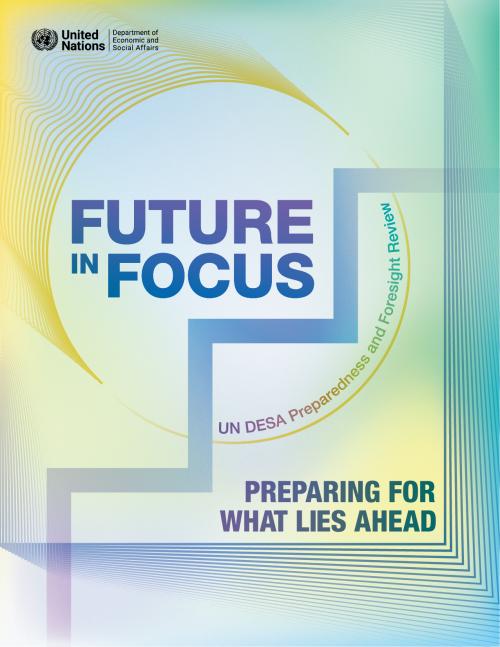
In an era marked by complex and interwoven crises, the role of the United Nations in preparing for the future has never been more critical. This review of UN DESA’s foresight and preparedness efforts shows how the Department’s economic and demographic forecasts, capacity development programmes, and work towards accelerating an inclusive and just transition help governments and people make strategic choices to shape and prepare for the future they want.
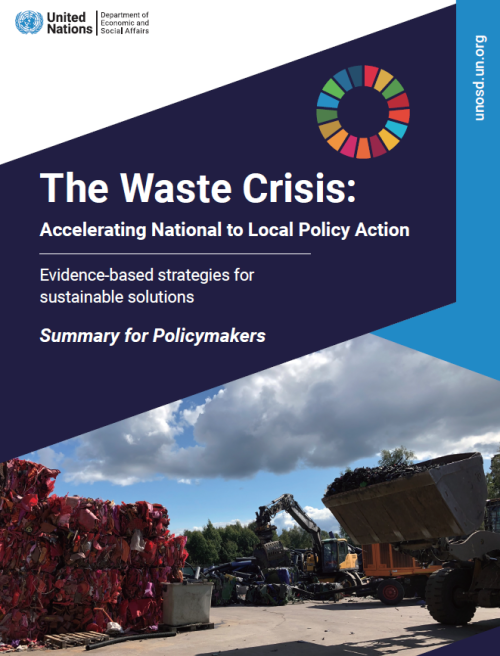
This Summary for Policymakers presents key facts, recommendations and next steps as a summary of the wider publication titled The Waste Crisis: Accelerating National to Local Policy Action Evidence-based strategies for sustainable solutions. The publication addresses the interlinkages between our current global production and consumption systems, which has led to a waste crisis requiring renewed attention on sustainable waste management policy and practice. Developed through a consultative process with inputs from experts across Member States, the United Nations, and civil society,
the report reviews current sustainable waste…
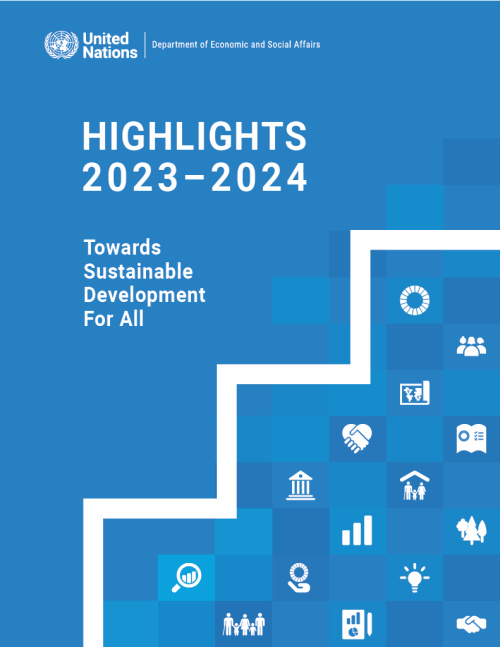
The UN DESA Annual Highlights report is a tool to communicate the contributions of the Department to the realization of internationally agreed development goals and shared social, economic, and environmental aspirations. It showcases the Department’s role in gauging trends, building capacities, and shaping solutions. UN DESA Highlights 2023–2024 covers activities over the period of the 78th Session of the General Assembly (September 2023 – August 2024) and reflects the Department’s response to the set priorities and expressed needs of Member States. Seven (7) thematic chapters showcase how UN DESA put its expertise to the task of supporting Member State efforts to implement the 2030…
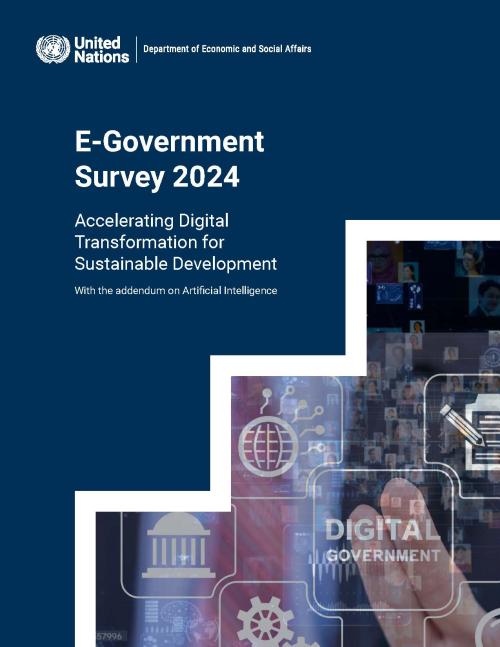
This thirteenth edition of the United Nations E-Government Survey, released in 2024, provides a comprehensive assessment of the digital government landscape across all 193 Member States. The 2024 Survey highlights a significant upward trend in the development of digital government worldwide, with increased investment in resilient infrastructure and cutting-edge technologies. The global average value of the E-Government Development Index (EGDI) shows substantial improvement, with the proportion of the population lagging in digital government development decreasing from 45.0 per cent in 2022 to 22.4 per cent in 2024.
Despite significant progress in digital government…
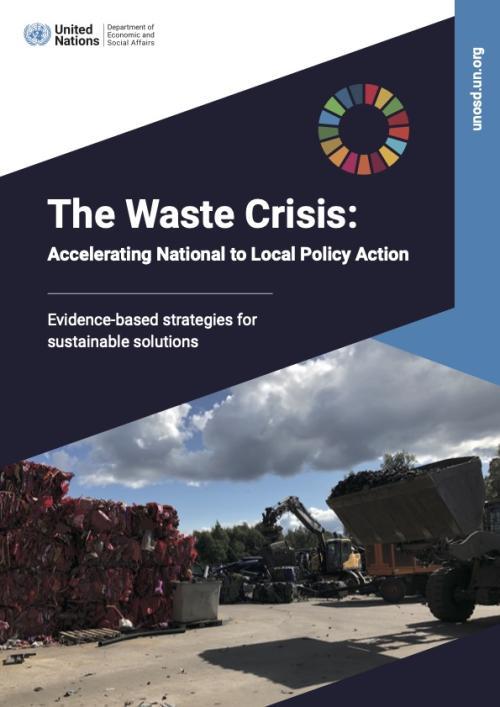
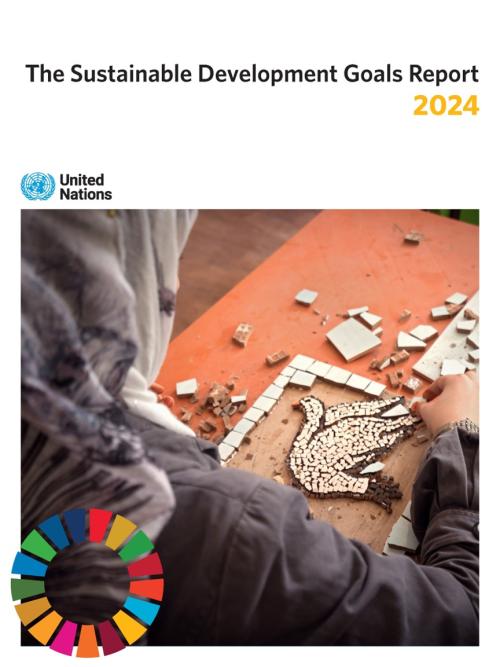
The Sustainable Development Goals Report 2024 details the significant challenges the world is facing in making substantial strides towards achieving the SDGs based on the latest data and estimates. It features areas with setbacks while also showcasing where tangible progress has been made, for instance, in reducing global child mortality, preventing HIV infection, and access to energy and mobile broadband. The report also highlights where action must accelerate, particularly in critical areas undermining SDG progress - climate change, peace and security, inequalities among and between countries, among others.
According to the report, with just six years remaining, current progress…
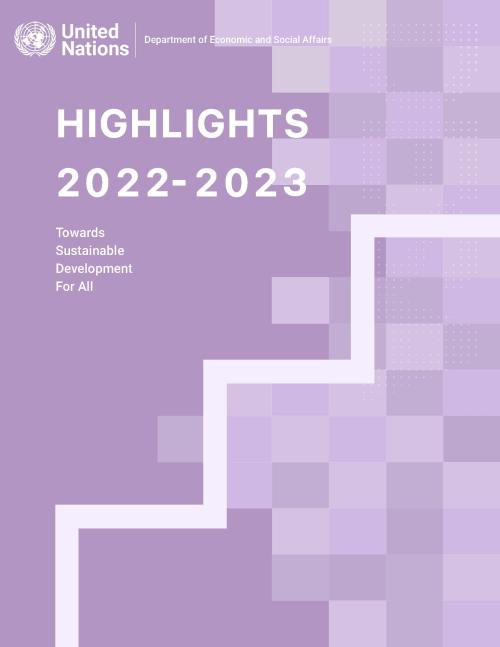
The UN DESA Annual Highlights report is a tool to communicate the contributions of the Department to the realization of internationally agreed development goals and shared social, economic, and environmental aspirations. It showcases the Department’s role in gauging trends, building capacities, and shaping solutions. UN DESA Highlights 2022-2023 covers activities over the period of the 77th Session of the General Assembly (September 2022 – August 2023) and reflects the Department’s response to the set priorities and expressed needs of Member States. Seven (7) thematic chapters showcase how UN DESA put its expertise to the task of supporting Member State efforts to implement the 2030…
The World Public Sector Report 2023 examines the role that national institutional and governance innovations and changes that emerged during the COVID-19 pandemic can play in advancing progress towards the 2030 Agenda for Sustainable Development. The report focuses on three main questions: How can Governments reshape their relationship with people and other actors to enhance trust and promote the changes required for more sustainable and peaceful societies? How can Governments assess competing priorities and address difficult policy trade-offs that have emerged since 2020? What assets and innovations can Governments mobilize to transform the public sector and achieve the SDGs? The report…
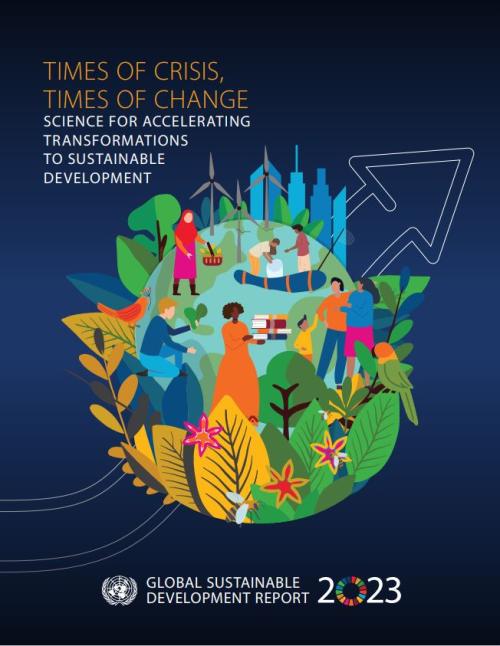
Times of Crisis, Times of Change: Science for Accelerating Transformations to Sustainable Development", the 2023 Global Sustainable Development Report (GSDR), finds that at this critical juncture, midway to 2030, incremental and fragmented change is insufficient to achieve the Sustainable Development Goals (SDGs) in the remaining seven years. Implementation of the 2030 Agenda requires the active mobilization of political leadership and ambition for science-based transformations. This must be achieved globally - leaving no country, society or person behind. The report is an invitation to embrace transformations with the urgency needed to accelerate progress towards the SDGs.
The…
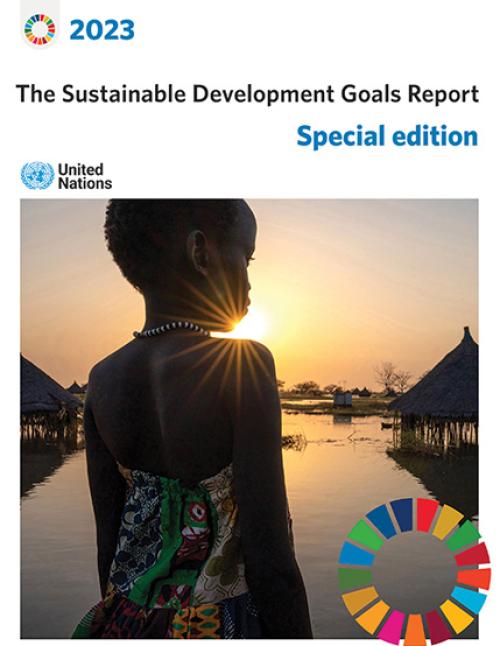
According to The Sustainable Development Goals Report 2023: Special Edition, failure to redouble global efforts to achieve the Sustainable Development Goals – the promise of a better world for all – may fuel greater political instability, upend economies and lead to irreversible damage to the natural environment.
World leaders made a historic promise to secure the rights and well-being of everyone on a healthy, thriving planet when they agreed to the 2030 Agenda for Sustainable Development and its 17 SDGs in 2015. However, the combined impacts of the climate crisis, the war in Ukraine, a gloomy global economic outlook and lingering effects of the COVID-19 pandemic have revealed…
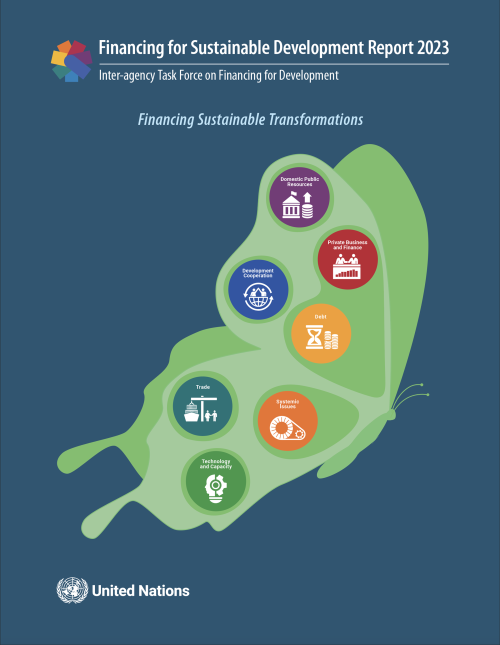
Sustainable development prospects continue to diverge between developed and developing countries. The 2023 Financing for Sustainable Development Report finds that SDG financing needs are growing, but development financing is not keeping pace. The war in Ukraine, sharp increases in food and energy prices, and rapidly tightening financial conditions have increased hunger and poverty and reversed progress on the SDGs. If left unaddressed, a “great finance divide” will translate into a lasting sustainable development divide.
Stakeholders must maintain a long-term focus on resilient and inclusive development, while addressing near-term crises. Delaying investment in sustainable…
The United Nations E-Government Survey 2022 is the 12th edition of the United Nations’ assessment of the digital government landscape across all 193 Member States. The E-Government Survey is informed by over two decades of longitudinal research, with a ranking of countries based on the United Nations E-Government Development Index (EGDI), a combination of primary data (collected and owned by the United Nations Department of Economic and Social Affairs) and secondary data from other UN agencies.
This edition of the Survey includes data analysis in global and regional contexts, a study of local e-government development based on the United Nations Local Online Service Index (LOSI),…
 Welcome to the United Nations
Welcome to the United Nations